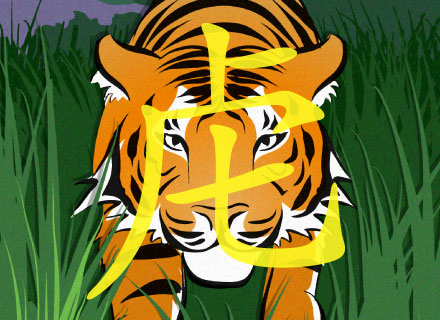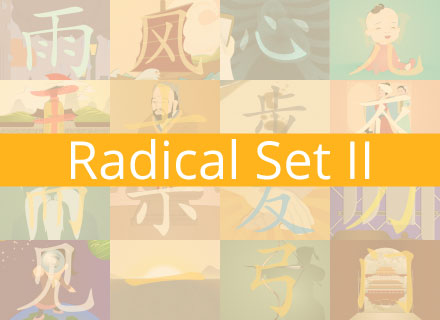虎 Hǔ | "Tiger" 
虎 is formed with the tiger radical: 虍 over the character 几 (jī) "small table, almost, a few" (depicting the tiger's legs). In Chinese culture the Tiger is synonymous with bravery and ferocity, a brave army is called a 虎旅 (hǔ lǚ) "Tiger Brigade", and a valiant general is called 虎将 (hǔ jiàng) a "Tiger General". 虎 is regarded as one of the four super-intelligent creatures, along with the dragon, phoenix and tortoise. In Chinese folk tales, tigers kill evil men and protect good men, and are the enemies of evil spirits, especially those who torment the dead. The Tiger is also one of the Chinese Zodiac animals, people born in the year of the tiger are thought to be brave, strong, stubborn and sympathetic. 虎 is also used as a component in characters such as 唬 (hǔ) "to intimidate", 琥 (hǔ) "amber", 虓 (xiāo) "roar", and 虣 (bào) "cruel, violent, passionate".
The idiom 三人成虎 (sān rén chéng hǔ) "three men make a tiger" comes from a story during the Warring States period. A high-ranking state official warned the King of Wei against believing rumors by sharing the following anecdote: if one person told him a tiger was in the middle of the market, he would never believe him. However, if three people told him that a tiger was in the middle of the market, he would start to believe them, even though the notion of a tiger being in the middle of a crowded market was absurd.
- Category: Pictograph
- Component Radicals: 虍 hū | "Tiger Radical" and 儿 Ér | "Child"











